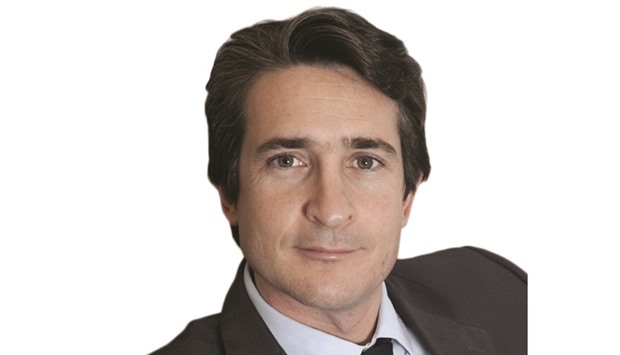French multinational company Thales has forecasted continued growth in the defence and security industry in Qatar and the Middle East despite streamlined government budgets and persistent low oil prices.
Thales chairman and CEO Patrice Caine said the company’s order intake across all sectors in the Middle East has increased by almost 100% between 2014 and 2015. Similarly, he said the order intake level has doubled from €3bn in 2012 to €6bn in 2015 in emerging markets in the Middle East, including Qatar.
Caine said despite the low oil price environment and budget cuts, Gulf economies put premium on the defence industry citing geopolitical issues.
“Due to the geopolitical situation in the region, we were not surprised at the strong demand for defence and security solutions in the Middle East,” Caine told Gulf Times in an interview. “This means that this region, particularly in Qatar, Saudi Arabia, Egypt, and even Oman, invests a lot in defence. According to defence ministers we have met, the defence industry is ‘priority zero’ because they want to protect their people and country,” he said.
In Qatar, Caine said he has “not seen any change in the behaviour of order intake” and expressed optimism that the country will continue its “strong momentum” towards defence and security solutions.
“Our future projects are still moving with a positive momentum,” Caine said.
Aside from defence, Thales has civil projects in Qatar such as the Doha Metro project, Lusail Light Rail Transit System, Qatar University and Qatar Science and Technology Park (in cybersecurity), and security projects for the New Hamad Port and Hamad International Airport.
“Qatar has become one of the key countries and customers for Thales across a variety of sectors. We gradually grown our activities in Qatar starting with our legacy activity in defence, but we have also expanded to other civil businesses such as IFE (in-flight entertainment), avionics, traffic management, and cyber security,” he said.
Caine also stressed that developing local industries will bring added value to the country and encourages transfer of technology and production, as well as local partnerships with Qatar-based companies.
“Qatar’s national vision 2030 is very important for companies like Thales because it gives us a long-term vision and helps us project the right investment in the next coming decades.
“Qatar does not only have a vision but it also has an ambition to develop the local industry. Otherwise, private investors and companies will not feel comfortable. The Qatar National Vision 2030 shows that the government has a strong political willingness to develop and diversify the economy,” Caine said.
Business / Eco./Bus. News
French firm sees ‘continued growth’ in Qatar, Middle East defence industry

Caine: Positive momentum.
